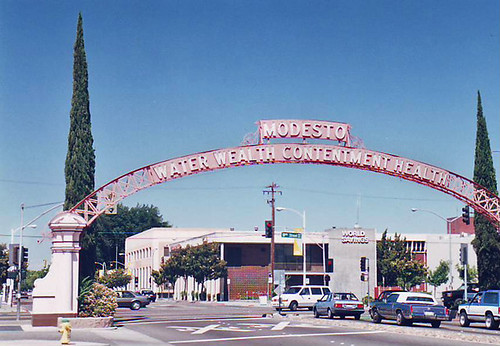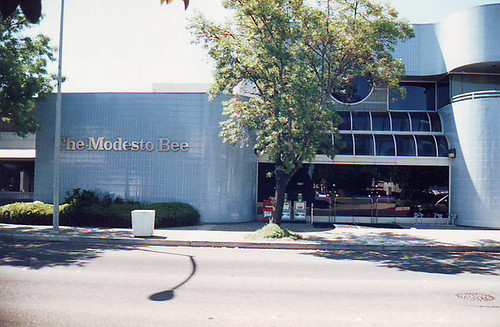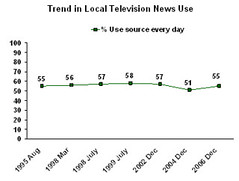5 Newsroom Tips to Improve Your Blog Today
Very talented writers publish excellent blogs every day, but the training received by most members of the blogosphere came in the time it took to fill out the forms to create the blog.
This lack of training is little problem for people sharing recipes or documenting the first days of their newborn child. However, many bloggers aspire to make a living at the craft, and financial independence is extremely unlikely for untrained hacks.
The print newspaper is dying a rather fast death, but formal journalism training benefits storytellers. With that said, here are five news tips for Bloggers:
1. Don't bury the lead
If you pick up the newspaper or call up the New York Times online, you will notice that few stories are told chronologically. That's because boring stuff usually happens at the beginning. Journalists get to the point. What makes this post interesting? Get that up front, or your readers will move on. In traditional news writing, the first paragraph is called the lead (often spelled "lede" to differential it from the hot liquid metal, lead, from which papers were originally printed).
And good leads contain the most important information.
Embarrassingly, burying the lead came to mind because I got called on it last week by a friend and fellow journalist. D'oh. How could I have been so careless?
2. Write compelling headlines
Clever, well-written headlines draw readers into the story. This was true on newsprint 100 years ago, and it's true today. Every word counts. Take the time present the most important facts compellingly.
A good headline cannot save a bad post, but a bad headline can prevent a good post from ever being read.
When I worked the copy desk at the Albuquerque Journal, I viewed every headline as a contest -- a contest that I wanted to win. Every day I wanted to hear a colleague say, "great headline."
Most people think that reporters write headlines. They don't. At best they suggest headlines, but in my experience they don't even do that. Headlines are written by copy editors, who know the font size and the number of columns that the headline needed to cover. And they have lots of practice at writing good headlines.
Blogs usually have a single-deck headline of a fixed length. Although this is limiting, it is not an excuse for lazy writing (more advice I need to remember, too).
Bottom line: Never, ever write the headline first. The best headlines are written at 10 p.m. when the reporter has been home for four hours. And they are never written before the story.
3. Make every word count
One of the biggest blog problems is excessive prose. Even when newsprint was cheap, there was a fixed newshole. And when it was filled, you stopped. This blog post can stretch to infinity. That's not an advantage.
As an analogy, consider what a former friend used to say to robust women with bare midriffs.
"Just because they make that in a size 13, honey, doesn't mean you should wear it."
Likewise, don't writer every word that comes to mind because you can.
Try to write tight. Sure there's endless space, but extra words are bad. You're probably blogging during spare time, and you don't have a rim and slot editor to trim fat. Be concise anyway.
4. Add color to your stories
I'm not a gifted writer. On my good days, I am a trained writer who tries hard. When I see a writer use powerful, concrete language, I am moved.
You can feel it when just the right detail is added to a story. What is the single aspect of a person or a situation that is crucial to the reader's understanding? Find it. Write it.
Remember that a picture is worth, more or less, 1,000 words. Only you can see what you're trying to say. Fight for exactly the right words to convey that scene to the reader.
5. Avoid adjectives
Excessive adjectives are the comforting crutch of the lazy writer. Sure, even well-trained, dedicated need some colorful descriptive adjectives. But if you're using a lot of them, then you have simply failed to find the right nouns and verbs (hopefully the humor is not lost in this paragraph).
Mark Twain is reported to have said, "When you can catch an adjective, kill it."
Did you really need to say, "violent explosion"?
This would supposedly differentiate it from a peaceful explosion.
We may talk of "future plans," but there's one adjective too many in that sentence. Unless your time machine surpasses mine, future plans are the only plans.
Catch them and kill them.
I'll be a better writer tomorrow for having reminded us both of these ideas. But surely, you are sitting there thinking, how could he have forgotten ...?
So, tell me. What is the sixth blog improving tip that I should have included?
Share your thoughts in the comments.
Learning good writing is not like learning to ride a bicycle (more on clichés another day). Good habits are forgotten. And writing well takes time. Take the time. Your readers will thank you for the investment.
Labels: blogs, journalism, writing












 FOLLOW SAM ON TWITTER
FOLLOW SAM ON TWITTER
 SUBSCRIBE TO THIS FEED
SUBSCRIBE TO THIS FEED
